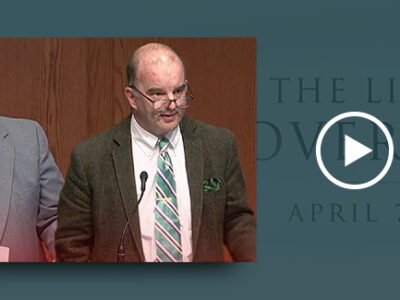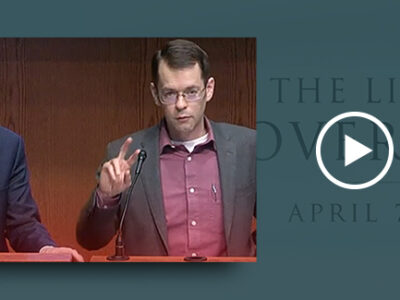In the sea of daytime talk, the “Montel Williams Show” is a popular island for many viewers. Always looking for controversy, the Montel team recently examined claims that fallen minister Ted Haggard had been cured of homosexuality by three weeks of reorientation therapy. The March 15th show titled,”Homosexuality … Can it be cured?” featured a hodgepodge of personal stories from people who said they had changed and those who said trying to change had greatly harmed them. In addition to the testimonials, the show brought on the obligatory expert to try to make scientific sense of the conflicting stories. Filling this bill was Dr. Alicia Salzer, psychiatrist and member of Montel’s staff.
Problem was, she did not make sense of the confusion. She added to it.
Commenting on guest Alan Chambers’s explanation of his changes in sexual attractions, Dr. Salzer said:
This is marketing; this is not science … . Science has shown us that 96% of people cannot change and along the way, absorb an enormous amount of self-loathing, a lot of confusion, a lot of family conflict, so I know the harm.
Why does this statement confuse? Because there is no research consensus that would allow anyone to say what “science has shown us…” about the probability of sexual orientation change. There are educated guesses, but that is about it.
Watching the show, I was stunned that a psychiatrist would make such a statement. When I called the Montel show to ask about the research basis for this claim, producer Melissa Borusso was kind enough to inform me that Dr. Salzer based her statement on a 2002 report by Ariel Shidlo and Michael Schroeder. However, Dr. Salzer made this important study say something it cannot possibly say.
The Shidlo and Schroeder study consisted of interviews with people who reported harm from efforts to change their sexual attractions. The express purpose of the study was not to study the likelihood of change due to therapy but rather to examine how people may be harmed by the effort. Their research is valuable because it helps therapists know that some change efforts, if approached poorly, may cause significant harm.
Drs. Shidlo and Schroeder interviewed 202 people who had pursued sexual reorientation. When the authors began, the project was titled: “Homophobic Therapies: Documenting the Damage.” In other words, these researchers looked for people who were harmed and so it is no surprise that the vast majority of their subjects said the therapy did not work. Later in the study, they opened their research up to people who benefited from reorientation because some of these people began to contact them.
As important as the study is, it cannot inform us about the rate of change because the researchers specifically sought subjects who felt harmed. You could make a case that riding in cars is invariably harmful if you only studied those who were in automobile accidents. But would that be scientific?
If you don’t believe me, perhaps you’ll believe Ariel Shidlo and Michael Schroeder. Here is what they said about their research in their professional paper published in a 2002 issueof “Professional Psychology: Research and Practice”:
The data presented in this article do not provide information on the incidence and the prevalence of failure, success, harm, help, or ethical violations in conversion therapy. (italics in the original, p. 250).
Let me unpack that. There is nothing in this study that would allow an estimate of how often change occurs. This study does not address the claim Dr. Salzer made on national television.
Other research has been conducted with people who believe they were helped by sexual reorientation therapy. For instance, Dr. Robert Spitzer found that 66% of previously gay men and 44% of former lesbians achieved heterosexual functioning through reorientation therapy and that a majority experienced relief from depression. But could I say science has shown us that these numbers reflect the probability of change for homosexuals who want to change? Not at all, Dr. Spitzer’s study specifically selected people who said they had changed.
Bottom line: here is what we can say—some people report being harmed and some people report benefit from efforts to modify aspects of their sexuality. At present, we do not know with precision how likely either outcome is to occur for anyone.
I have asked the Montel Williams Show if they stand behind this statement and they have not replied. In my opinion, Dr. Salzer and the program should retract the statement.
I am completely aware that harmful things have been done and continue to be done in the name of reparative therapy, but Dr. Salzer’s statement about a rate of change cannot be considered scientific and as such confused and inflamed an already emotional issue.
As a psychiatrist, Dr. Salzer should know better.




